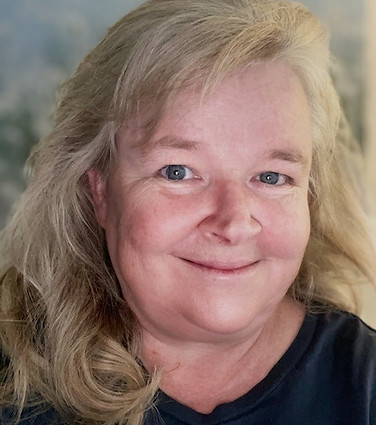
About...
Besides working with people, I enjoy being with my husband, three teenagers, and two cats. I like being creative, being in my garden, and being entertained by movies and books.
My own life can also become easily unbalanced, and I keep working towards creating my own symmetry.
Me

My past work


.png)
I have worked for over 15 years as a Clinical Psychologist and Behaviour Support Clinician for the Department of Communities (previously known as the Disability Services Commission).
I've had many roles working with Autistic people and people with disability, particularly intellectual disability. I’ve worked with adults, and teenagers, as well as their families, and other people who support them.
My most recent role was working with staff in services that support people with disability. I helped these services better understand and work with people who acted in ways that the service found difficult to respond to.

My purpose -Why I do what I do
I also think people should be able to get good help with things
that are important to them.
.png)

I want to offer a quality service that is meaningful to the person, understands their needs, and helps them create
a life that works for them.
I want to live in a world where everyone feels welcome, and they have a place to belong.
My approach
What guides my service
Evidence based practice
My service is tailored to each person's situation using an evidence based approach. This means that it's designed and delivered using information (evidence) from three main sources:

The person's knowledge, skills, and beliefs, learned throughout their lives. The person has expertise in understanding their preferences and needs. Sometimes the person may rely on trusted others to help them express these.
.png)
My knowledge, skills and beliefs, learned from my life and past work. I will be guided by what I have learned from my past experiences. I will share my knowledge and skills and be aware of how my beliefs influence what I do with the person.
.png)
The best available research and knowledge in relevant areas. My service will draw from a range of strategies that have been proven helpful in supporting people in areas that relate to the person's chosen focus.



I will work together with the person, using these three main sources to decide what we do in the service. This helps my service be good quality and achieve successful outcomes, and makes sure the person has access to useful knowledge and skill in a way that includes their own expertise.
Problem contexts not problem people
I help people with their problems, but this doesn’t mean that the person is the problem.

When someone is affected by problems with their mood, thinking, or actions, this is because of many different reasons to do with the way the person's needs and their environment combine.
A person’s environment is all the things around them such as their homes, places they visit in the community, activities they do, and the other people in their lives. If a person's environment doesn't support them to meet their needs, this creates a problem context.

When others focus only on the person as the problem, this can put a lot of pressure on the person.
They can feel like there is something wrong with them, and they need to fix themselves so they can fit in with others.
Focusing on problem contexts not problem people, gives the person freedom to create a life that fits them. There is shared responsibility for building supportive and inclusive environments.
.png)
Positive Behaviour Support
.png)

Sometimes problem contexts can cause people to act in ways that can be dangerous to themselves or others. These actions can be called behaviours of concern, or challenging behaviour. If a person's needs aren't being met, the person can respond in ways that put themselves or others at risk.
Positive Behaviour Support (PBS) is a service delivery approach that helps the person build a life that reflects their needs. PBS helps the person learn ways to do this. PBS also helps others better support the person to meet their needs.

I use PBS as a guide when working with people. PBS has been studied for a long time and shown to be helpful to people in improving their lives. Some people may have already heard of, or tried a service that has a PBS approach while it may be completely new to others.

I'm aware that some people may have concerns about PBS, particularly one part of PBS called Applied Behaviour Analysis (ABA). ABA uses behaviour principles to try and reduce or prevent behaviours of concern. Sometimes people express having bad experiences with ABA. They can describe having their rights ignored when other people use ABA without their agreement, or focus on areas not important to them, or use it in ways that unnecessarily restrict the person.
I recognise that this can impact greatly on the person. I will pay attention to any concerns they have and keep the focus on protecting their rights.

In my service, I use PBS as part of my evidence based practice approach. I have knowledge and skills in PBS. I also have training and experience in other proven ways to help people. Together, with the person’s expertise and perspective, we will work on things that are important and meaningful them.
